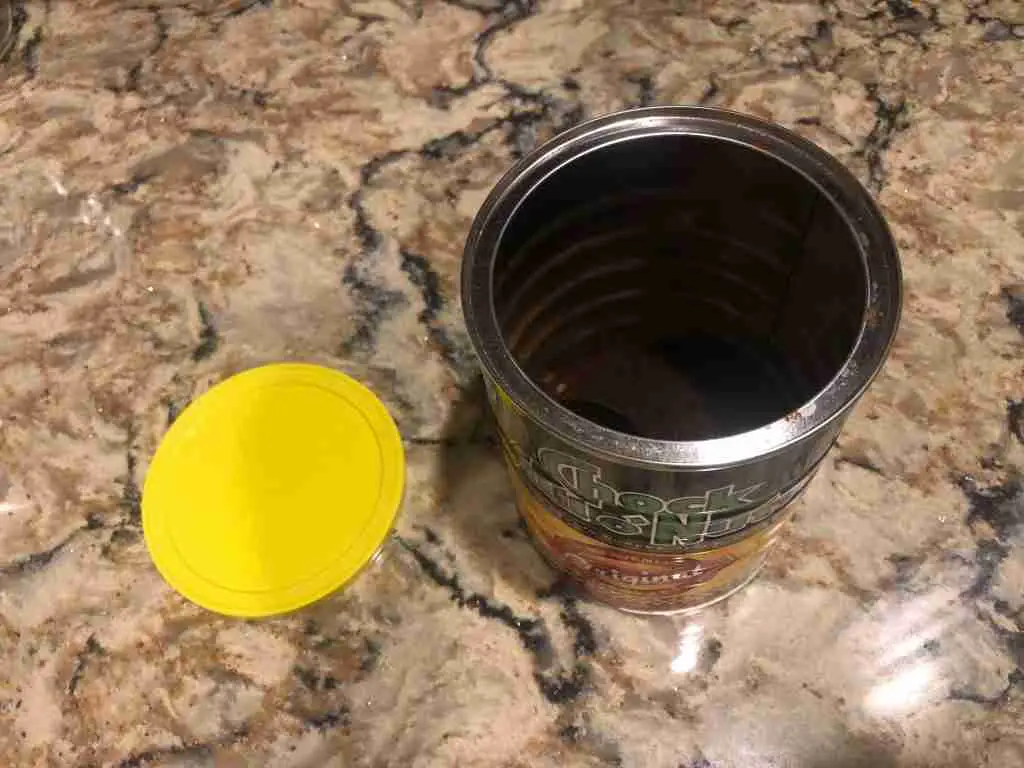
There is a chance that you may have spoiled coffee in your cupboard right now. If you’ve had your coffee for more than a month you are probably wondering, “Can coffee go bad”? Well, you’ve come to the right place. We will talk about the life cycle, its shelf life, and how you can store your beans to keep it fresh.
How to Tell if Your Coffee has Spoiled
If you do not store your coffee there is a chance your beans have gone bad, rotted, or spoiled. Since grounds look the same even when old it may be hard to tell.
The best way to figure out if your grounds are still good is the smell. Coffee oxidizes if not used immediately and slowly loses its smell. As a result, if your grounds have spoiled there will be no aroma and it will also lose most of the taste. However, at this stage, you can still drink it. It will just be less flavorful.
Once your grounds are wet, that is when you should be concerned. If coffee is stored in a humid environment, it may absorb some of the water from the atmosphere. Therefore, when that happens you will see mold grow in the grounds. Once this happens, you must discard all the grounds. Even if it does not appear to be moldy there is mycelium that cannot be detected by the naked eye. It grows throughout the coffee grounds and contaminates the whole batch.
Shelf Life of Coffee
Coffee does not spoil unless it gets wet. Normally, the coffee will lose its taste over time and become tasteless. This is what we considered spoiled. We usually throw out anything that has reached this point out because it has lost all the good flavors within and only the bad flavors are left. Most coffees will have a limited life span. Whole beans will last for about half a year. Grounds only last a few months. Instant coffee will last for years, but it does not taste as good as a freshly roasted and ground cup.
Ideally, when we drink a cup we will have a freshly roasted and ground. The coffee tastes the best right after it has been freshly ground. As a result, you should only grind enough for one serving at a time and never buy ground beans in bulk.
If you brewed a cup and plan on coming back to it later. Or if you have a pot sitting in the coffee maker you will be surprised to know that it tastes best for about 30 minutes after brewing. After that point, it slowly starts to lose flavor unless you store it in an airtight container. This is because when exposed to oxygen the coffee will continually oxidize.
Understanding the Oxidation of Coffee
When coffee is in contact with oxygen it starts to oxidize. Grounds oxidize faster than regular whole beans because the surface area is increased by 1,000 – 10,000 times. This is the same as what happens to avocados when they are cut and turn brown. However, oxidation is not visible to the naked eye. It does have a significant impact on the taste of your coffee.
Oxidation happens when the beans release their oils, aromatics, acids, and flavor. You don’t want this to happen before your beans are at the brewing process. The older your grounds are the more oxidized they are. Coffee brewed from an old oxidized batch will taste stale even immediately after brewing a fresh cup.
You can prevent oxidation when you store it in an airtight container.
Stale Coffee Flavor
Stale coffee isn’t dangerous to drink. It is just less flavorful than fresh. However, if you put milk in your coffee do not drink it if you’ve left it out for more than 2 – 3 hours.
Our suggestion for storing grounds is to put it in an airtight container to prevent the oxidation.
When you brew your drink you can keep it in the refrigerator. You can keep a cup fresh for up to a week in the fridge. However, it will not be as tasty as something freshly brewed.
There is no such thing as a flavor molecule that gives coffee all its flavor. It is the combination of all the chemicals and compounds inside the bean. There are thousands of different compounds like carbohydrates, amino acids, and lipids inside the bean and comes together to make a cup of coffee. When left out these compounds can change and there are chemical changes that occur that can alter the taste of your end result. This is why coffee is always best just after roasting and brewing.
Carbohydrates can go stale. It is like when you leave crackers or bread out in the open. Eventually, you will be left with a tough and hard tasteless brick. This also happens with coffee.
Volatile organic compounds evaporate and this is why your coffee doesn’t smell as good. Oils and VOCs leave the grounds and you are left with a less fragrant result.
Is Stale Coffee Safe to Drink?
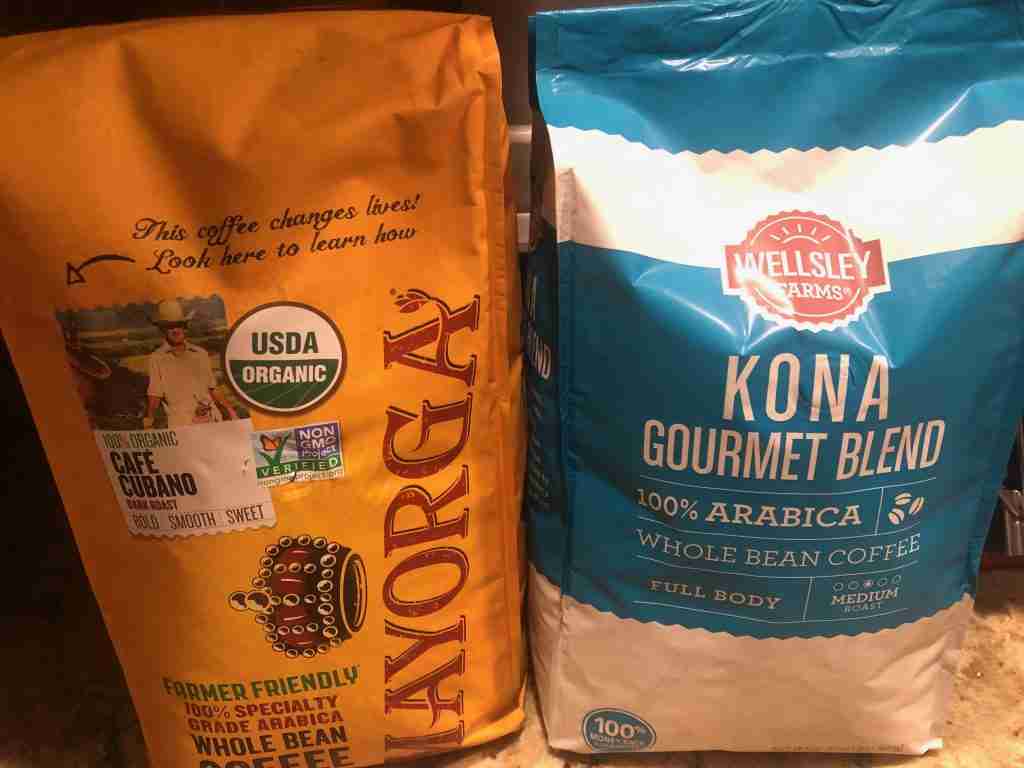
As long as the beans are properly stored you can drink for years. This is if they are unopened, sealed, and stored dryly. In fact, many of the commercialized beans sold at grocery stores are left on the shelf for several months and even years. It is completely safe to drink, but if you compare the beans with a freshly roasted and brewed cup the difference will be immense.
Do not drink any coffee that is:
- If the grounds seems wet
- Stored improperly without being tightly sealed
- Smells funky (mold or mildew)
How to Properly Store your Beans
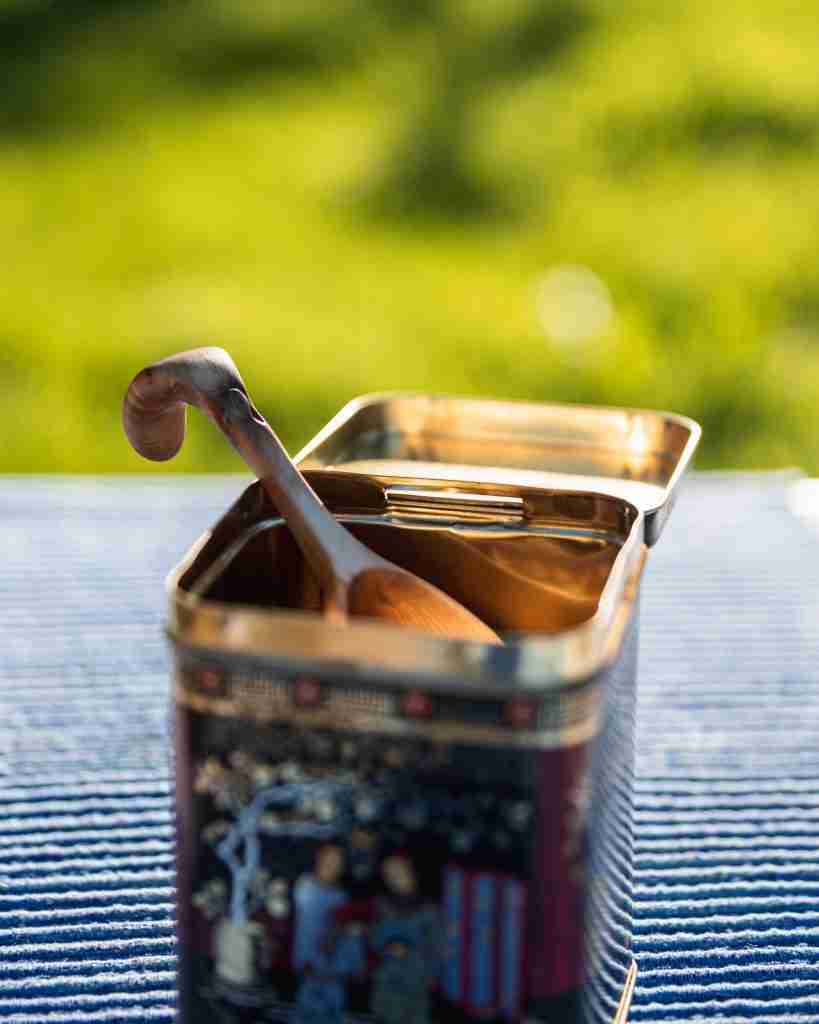
How long your beans last will depend on how you treat your beans. Coffee beans are best stored in a cold and dark environment away from any moisture. Like we said before when they get moist they can grow mold and ruin the batch. When stored in a cold airtight container you can extend the life of your whole beans for up to a year.
One tip we have for storing beans is to put them in the freezer. This greatly extends the life of the flavor and extends the shelf life way past leaving it out. However, by freezing your beans you are destroying some of the chemicals in the bean and ultimately altering the flavor. If you are looking for the purest and best flavor it is still best to drink it fresh. When comparing a cup of frozen grounds and fresh grounds it is easy to tell which has a more complex flavor profile. Only put your coffee beans in the freezer as a last resort!
Best ways to store coffee to ensure freshness
Coffee is one of the world’s most popular beverages, with its daily consumption estimated to be around 2.25 billion cups. It’s no surprise since most people love waking up to a hot mug of fresh coffee as it helps them get their day started on a bright note. And the numerous health benefits associated with it further makes it more desirable.
If you’re a coffee-lover, you probably know everything about your perfect cup of Joe, but do you know how to store it for as long as possible? Most people complain that their coffee is not as great as they expect it to be, and one of the major reasons is that they’ve been stored wrongly.
If you want your fresh coffee to be full of flavor, your best bet is to store your coffee correctly. According to experts, ground coffee can retain its flavor for some weeks past its expiration, the whole bean for up to nine months, and instant coffee for up to twenty years – only if you do the storage correctly. So here’s how you can store your coffee properly to ensure freshness.
Understanding the basics of storing coffee
Before anything, it’s critical to know the basics of coffee storage, as this will help minimize the likelihood of making mistakes. The first thing you should know is that all coffee, in any form, has five enemies: oxygen, heat, light, moisture, and freshness of roast. These factors can cause your coffee beans to become stale in no time
When coffee is exposed to air, oxidization takes place, and it begins to lose its flavor profile. Much like perishable food items, heat and moisture can also make coffee become stale, and the same goes for light – only that the process is slower. While you need water and heat to brew your coffee, exposing your beans to them before you’re ready to consume coffee will make them break down fast and lose that punchy flavor.
The fifth reason coffee loses its flavor potential is the freshness of the roast. When coffee beans are roasted, they become filled with carbon dioxide, which is a byproduct. Coffee roasters usually store the beans in nitrogen-flushed valve bags that allow carbon dioxide (CO2) to escape. The entire idea of storing coffee is to guard against these four things so your coffee will maintain its freshness.
While it is not recommended to use coffee beans as soon as they’re roasted because of the high levels of CO2, waiting too long after the beans have been roasted might lead to loss of freshness. The ideal time to use beans after roasting is 1-2 weeks, so the flavors will come through after the off-gassing of CO2. While you cannot stop the clock from ticking, you can do a few things to keep your beans fresh.
Tips for storing coffee properly
Now that you know the basics of storing your morning pick-me-up let’s get to how you can store your coffee to ensure freshness.
Choose an airtight container
While there are a couple of storage options for your choosing, none is better than an airtight container. All airtight containers are not the same, so be sure to look out for the following before choosing the one to use.
- Because coffee can soak in odors and flavors, it’s essential to confirm that the container is not a reactive material. Experts affirm that the best non-reactive containers are ceramic and glass.
- The container you choose should be opaque since light is one of the enemies of coffee. Disregard this criterion if you plan to keep the container in the dark place, but most coffee lovers say it can see the beans on a countertop is a lovely sight.
- As stated earlier, make sure the container comes with an airtight lid to prevent any air from coming in or out. It should also be able to protect the beans from moisture, which can displace the essential oils in the beans and accelerate aging.
Amazon lists several airtight coffee containers designed for the sole purpose of storing coffee, so you might want to check them out and order a place for your orders. If you’re really passionate about storing your coffee, you could go further by investing in vacuum canisters, which provide an outlet for the carbon dioxide to escape while protecting the beans from oxygen.
Buy green or raw coffee beans
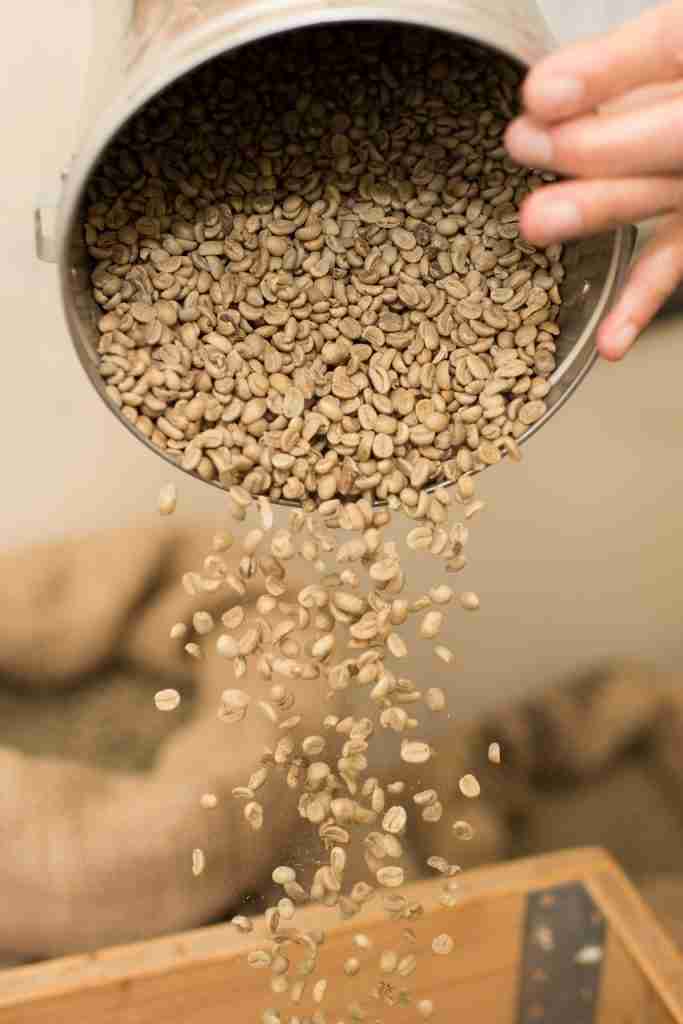
It’s better to store green coffee beans as they stay fresher than any form of coffee. Pre-ground coffee bags are a bad idea for storage because there’s a good chance that they have been sitting on the shelf for weeks and that the flavors peaked awhile ago. And while roasted coffee beans are better than pre-ground, they go stale at a much faster rate compared to green coffee beans.
If stored correctly, raw beans can easily retain their flavor profile for up to a year, but the downside is that you have to learn how to roast your beans. While roasting your coffee beans requires some effort, it can actually be an advantage since you will be in control of its flavor.
Buy the right amount
When next you go shopping for your coffee beans, consider buying the number of coffee beans that you can brew within a few weeks. Keep in mind that coffee beans start losing their freshness as soon as they get roasted, so buying too much coffee at one time might not really be a wise decision. The truth is that high-end storage can’t save coffee beans forever.
Experts recommend buying freshly roasted coffee in small batches, so you can consume a batch in two weeks while its flavor potential is still high and buy another fresh batch. Buy small coffee at once, and you will be able to minimize the chance of some going flat.
Divide your beans into smaller containers
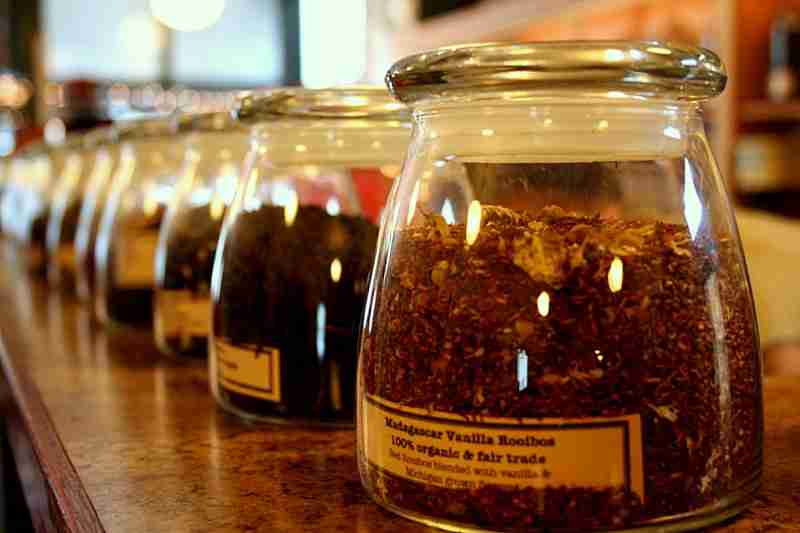
A common mistake most people make is keeping all their coffee beans in just one airtight container. So they end up opening and closing the containers repeatedly, which means the beans get exposed to air each time they need their daily fix.
A better idea is to divide your coffee beans into smaller portions and store them in different containers, so they don’t all get exposed to oxygen at the same time. That way, the unused coffee stays undisturbed for a longer period.
The don’ts of storing coffee beans
It’s easy to do damage to your coffee even when you have the best intentions. Now that you know what to do, it’s essential to know the pitfalls to avoid, so your coffee doesn’t go bad.
Do not freeze your coffee beans
Many people believe that freezing their coffee beans is a great way to keep them fresh, but that’s not true. Freezing your beans might make them fresh for a couple of weeks, but it’s only a matter of time before the process creates crystals that shatter the cells. When you eventually remove and thaw them, condensation will form on the beans and hasten the process.
Also, keep in mind that coffee is hygroscopic, meaning it can absorb odors and flavors around it. So you might end up not getting the qualities of a good cup of coffee.
Do not put your coffee beans in the fridge
You’ve probably been told that you can store your coffee beans in the fridge for a couple of days to guard against heat, which means the staling process will be slower. However, refrigerating your beans provides an opportunity for condensation to form on them, and that is one of the fastest ways to spoil them.
The simple truth is that your fridge is not cold enough to keep coffee much fresher than your pantry. And if you’re like most people that store their aromatic foods in the fridge, there’s a high chance that your coffee will soak up these odors.
Don’t store your coffee beans for too long
No matter the amount of effort you put into storing your coffee, it will eventually become stale. While experts say that you can store your coffee for several weeks and months, it’s best to consume your coffee before it outruns its shelf life. Don’t forget that the clock is ticking, and the staling process is on even though you’re storing it, meaning its flavor and quality are on a steady decline. You don’t want to brew it after a couple of weeks only to discover that its sweet aroma and taste are gone.
Summary
In the end, fresh is always the best. However, if you want to store your coffee so it doesn’t go bad we would recommend putting your whole beans in an airtight container in the freezer. Then, you would only grind enough beans for each brew. This is our guide to preventing your drink from going bad and losing flavor. Coffee is a great drink and you should not be afraid of drinking it. It is proven by science drinking coffee is actually healthy!
If you can’t imagine starting your day without your hot cup of fresh coffee, the last thing you want is for it to become stale. With the actionable tips on storing coffee above, you will be able to maximize the freshness and aroma of your daily caffeine fix.


It’s so helpful to know that you should try to keep the beans as dry as possible if you want them to stay fresh. My brother has a store that serves a lot of coffee throughout the day. He is going to try and buy a lot of coffee at once so that he doesn’t have to think about it as much anymore.
I’m glad I could help. Please let me know if it helps you keep your coffee fresh for longer.